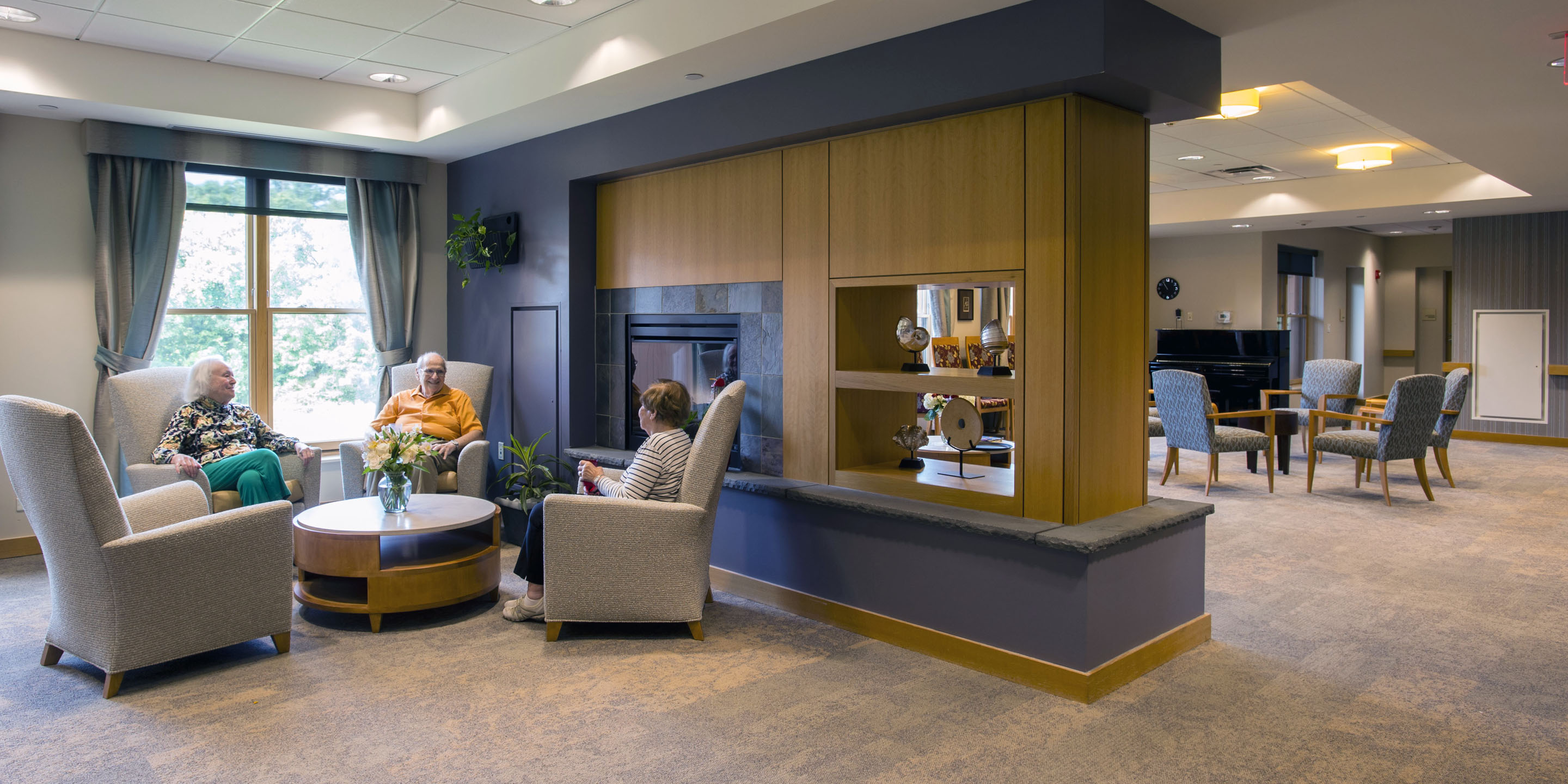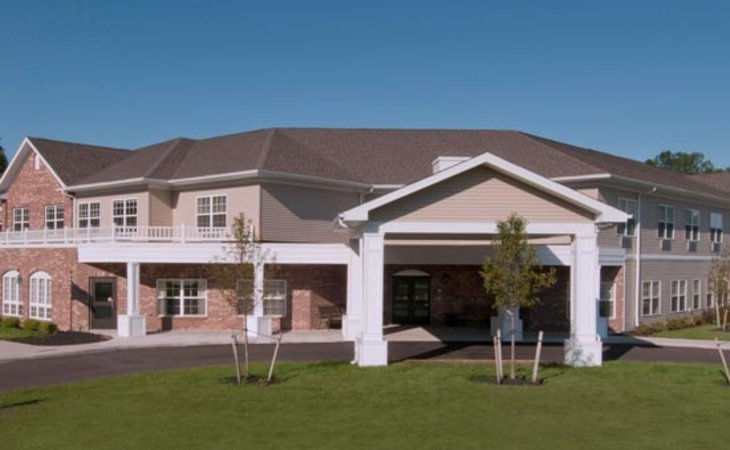Charlotte Memory Care: Specialized Care for Alzheimer's and Dementia
Charlotte Memory Care: Specialized Care for Alzheimer's and Dementia
Blog Article
Developing a Safe and Helpful Setting: In-Home Memory Treatment Fundamentals
Developing a secure and nurturing setting for individuals requiring at home memory treatment is extremely important to their health and quality of life. From ensuring safety and security within the space to employing effective communication techniques and applying memory-friendly layout components, there are important components that add to a holistic care strategy. By concentrating on developing an encouraging ecological community that satisfies the one-of-a-kind demands of those with memory disabilities, caregivers can dramatically boost the daily experiences of their loved ones.

Safe Living Environment
Developing a hazard-free and safe living environment is paramount when supplying in-home memory care for people with cognitive problems. Making sure the safety of the private with memory loss is important to avoid mishaps and advertise a sense of health.
Additionally, it is important to mount security functions such as grab bars in washrooms and hand rails along staircases to offer assistance and stop crashes. Additionally, utilizing innovation such as activity sensors and alarms can alert caretakers if the individual wanders or is in distress. Creating a safe living setting also entails applying approaches to stop roaming, such as using door alarms or locks to restrict accessibility to dangerous areas. By focusing on safety and security measures and getting rid of potential threats, caregivers can give a supportive and protected environment for people with cognitive problems obtaining at home memory care.
Reliable Communication Methods
Implementing tailored communication strategies is important in promoting purposeful communications with people with cognitive problems in the context of in-home memory treatment. Reliable interaction plays a crucial role in developing a helpful atmosphere that enhances the wellness and high quality of life for people with memory issues. When connecting with someone experiencing cognitive decline, it is very important to utilize simple and clear language, keep a tranquility and favorable tone, and give visual hints to assist comprehension.
One secret strategy is to exercise active listening, revealing compassion, perseverance, and respect throughout conversations. Non-verbal hints such as faces and body movement can likewise help communicate understanding and assistance. Additionally, utilizing reminiscence therapy by using or discussing previous experiences music and art can tap into long-term memories, stimulating and stimulating connections involvement.
Moreover, incorporating routine regimens and constant communication patterns can give a sense of knowledge and safety and security for people with memory problems. By executing these communication strategies, caretakers can establish purposeful connections and advertise a sense of comfort and trust in the at home memory treatment setting.
Memory-Friendly Layout
Given the relevance of developing an encouraging setting for people with memory issues through efficient communication methods, the incorporation of memory-friendly layout elements in the home ends up being vital in maximizing their daily experiences and general health. Memory-friendly style concentrates on boosting safety, convenience, and freedom for people with cognitive impairments. Basic alterations can make a significant difference, such as making use of contrasting colors to boost exposure and reduce complication, including clear signage to aid navigating, and minimizing clutter to avoid sensory overload.
Including familiar aspects from the individual's wikipedia reference past, such as personal pictures or favorite things, can stimulate positive memories and develop a sense of knowledge. In addition, guaranteeing ample illumination levels, mounting grab bars in shower rooms, and implementing non-slip floor covering can help stop falls and injuries. Developing a comforting and soothing atmosphere through making use of familiar scents, soft structures, and serene noises can additionally promote relaxation and minimize agitation. By incorporating these memory-friendly style aspects, caretakers can give a risk-free and supportive home that makes it possible for individuals with memory problems to maintain their freedom and lifestyle.
Daily Routine Preparation
When creating an everyday regimen for individuals with memory problems, careful planning is crucial to support their cognitive function and general wellness. Establishing helpful hints an organized timetable can assist decrease complication, anxiousness, and disorientation commonly experienced by those with memory problems.
Flexibility is vital, as some days may require modifications based on the individual's state of mind and energy degrees. Consistently evaluating and adjusting the day-to-day schedule will aid guarantee its effectiveness in advertising a reassuring and positive atmosphere for individuals with memory difficulties.
Support Group Application
Establishing a robust network of encouraging individuals plays a pivotal duty in boosting the top quality of care and wellness for individuals requiring memory support. Relative, good friends, healthcare professionals, and neighborhood sources can all contribute to creating a strong assistance system. Interaction among these individuals is necessary to make sure that the requirements of the specific with memory challenges are fulfilled effectively.
Household members are typically the key caregivers and develop the backbone of the assistance system. They supply daily care, emotional assistance, and companionship. It is critical for family members to look for help and break when required to prevent exhaustion and make sure the most effective possible look after their loved one.
Along with family members assistance, entailing medical care specialists such as physicians, nurses, and therapists can supply customized care and assistance. These experts can supply beneficial insights, medical guidance, and aid in taking care of the person's problem.

Verdict
In final thought, creating a encouraging and risk-free atmosphere for people with memory treatment needs is necessary for their well-being. By developing a safe living environment, utilizing effective interaction techniques, incorporating memory-friendly design aspects, preparing daily regimens, and applying a solid support system, caregivers can assist improve the lifestyle for article source those with memory loss. These essential elements collaborate to develop a nurturing and encouraging setting that promotes freedom and enhances general top quality of life.
Creating a hazard-free and safe and secure living setting is vital when supplying at home memory care for individuals with cognitive disabilities. By prioritizing safety actions and eliminating possible threats, caregivers can give a encouraging and protected setting for individuals with cognitive problems obtaining at home memory treatment.
Establishing a durable network of encouraging people plays an essential role in boosting the quality of treatment and wellness for people needing memory support - Charlotte Memory Care. Communication among these individuals is crucial to make certain that the needs of the individual with memory challenges are satisfied properly

Report this page